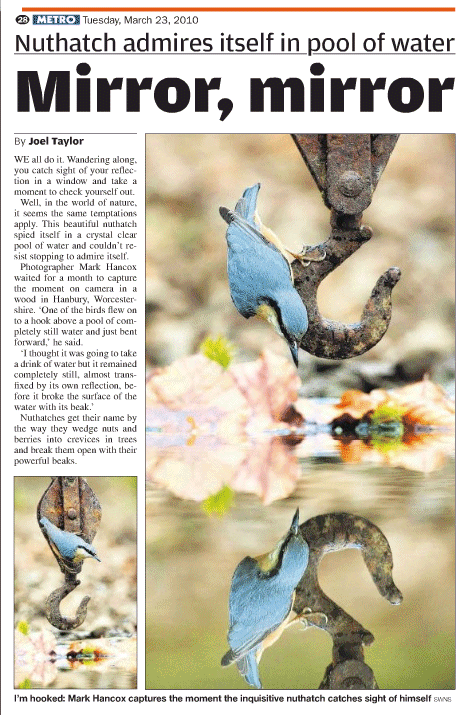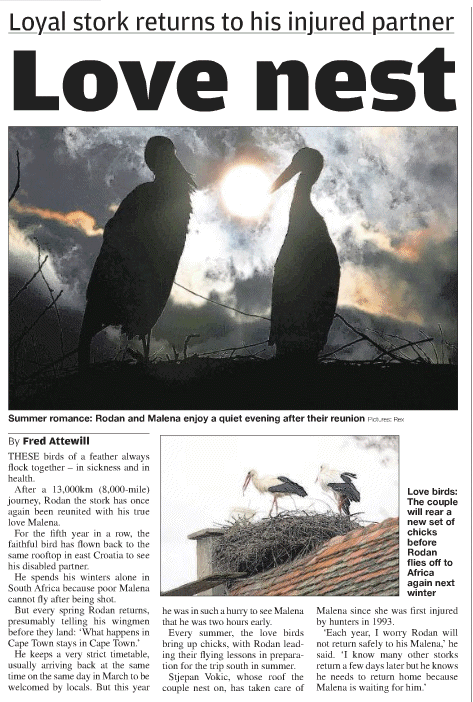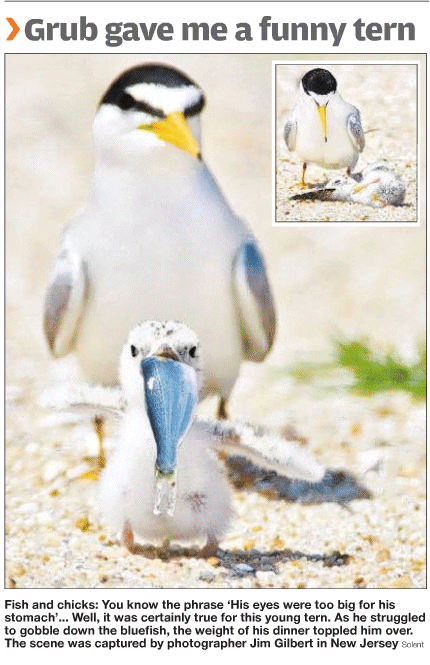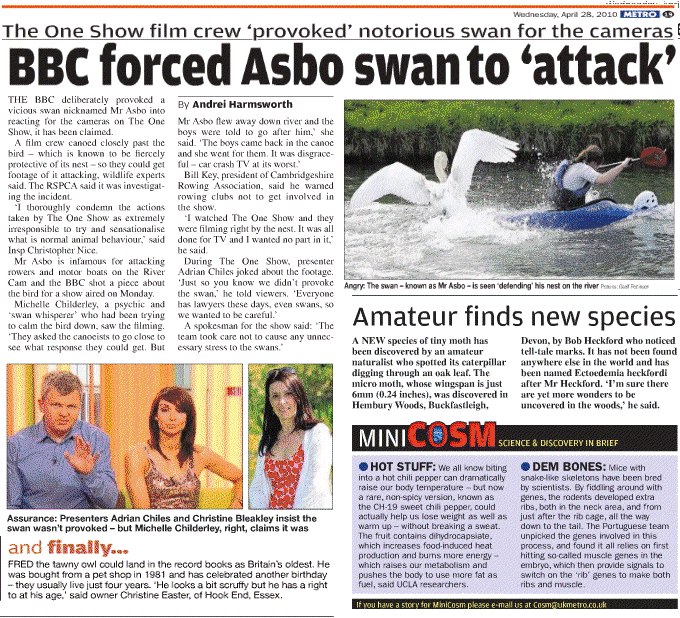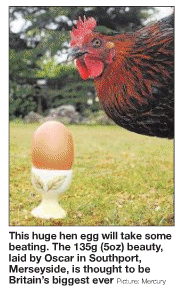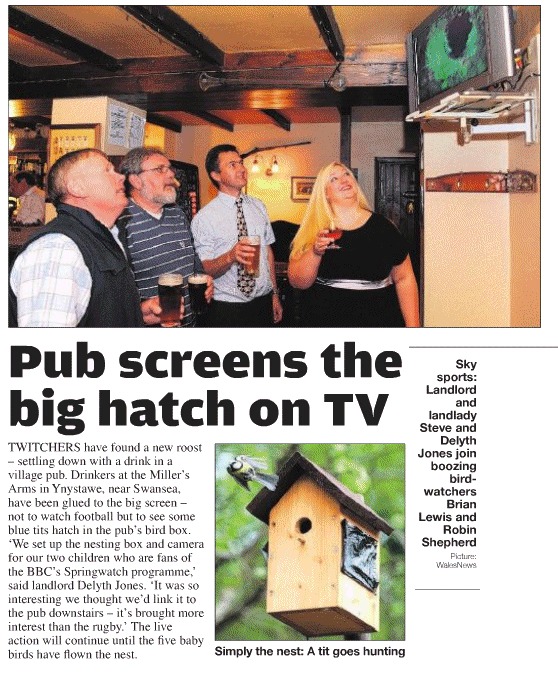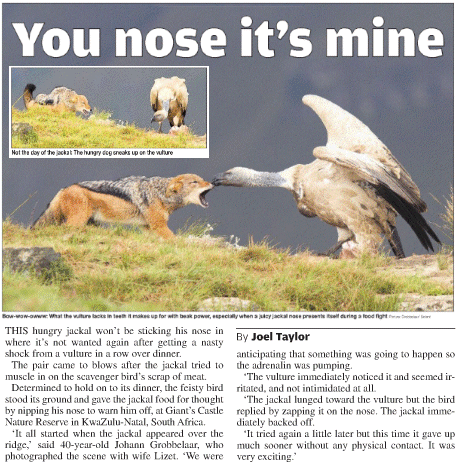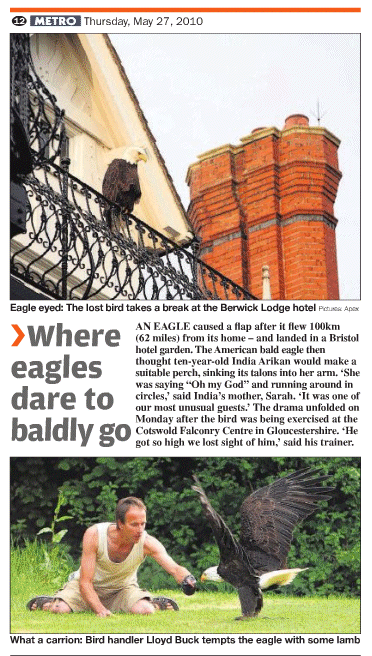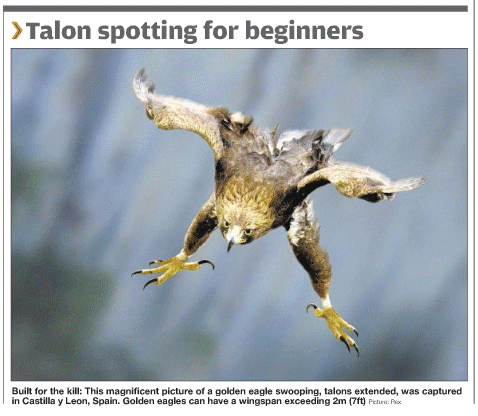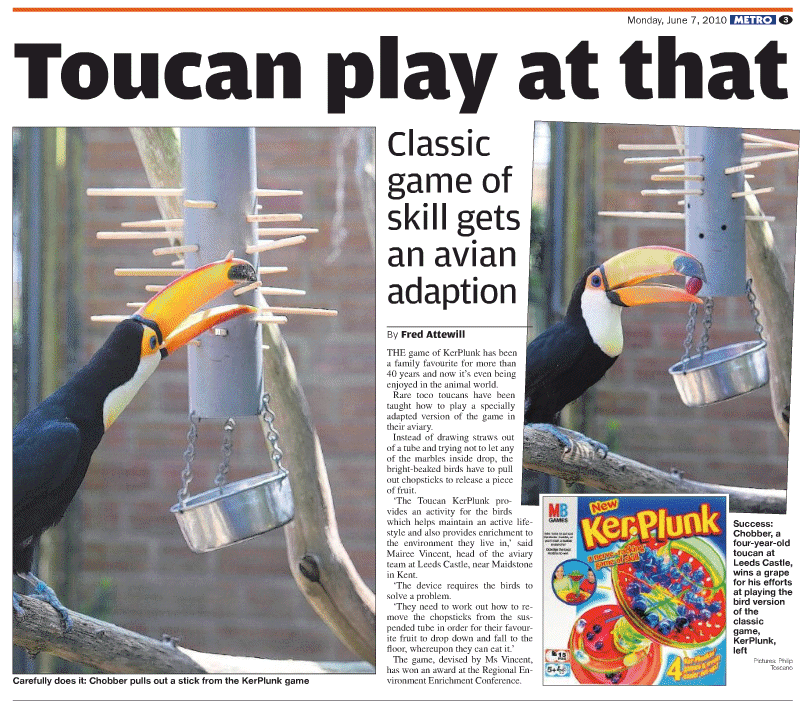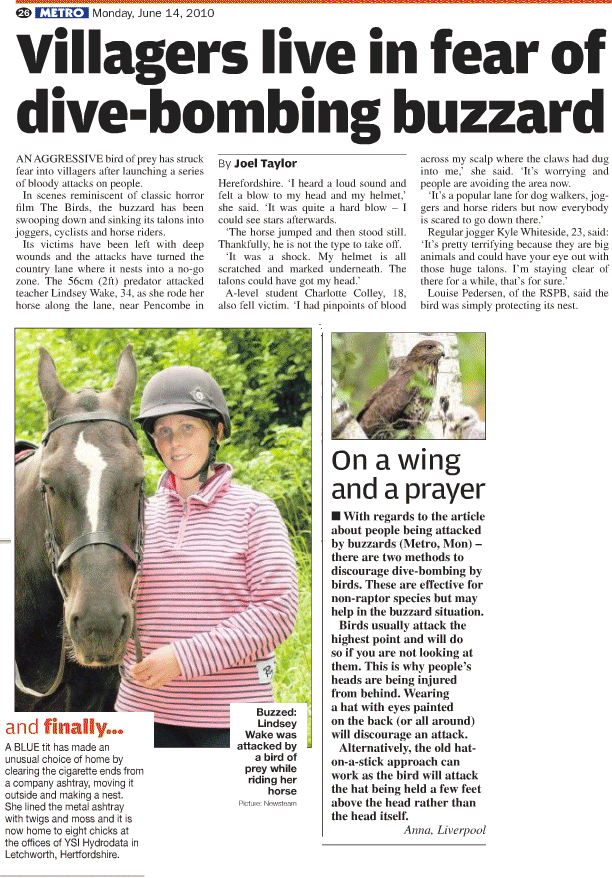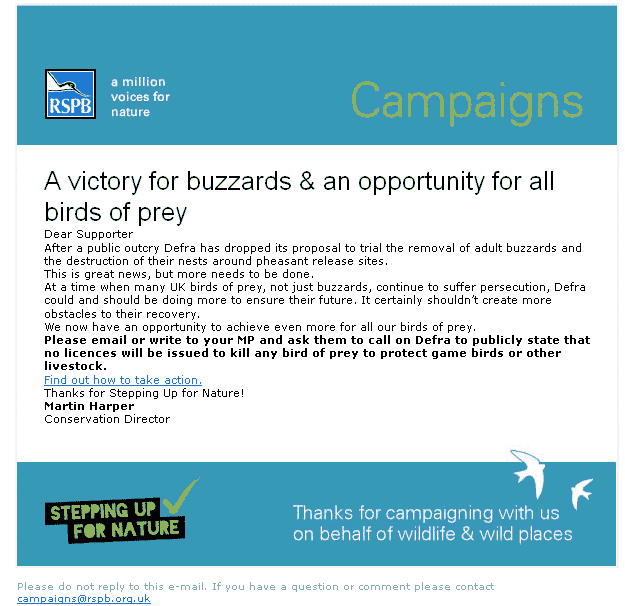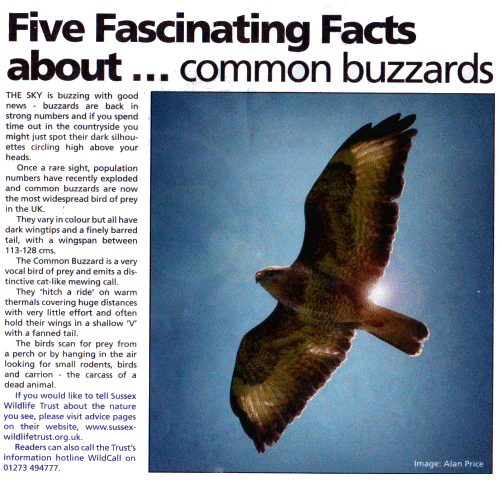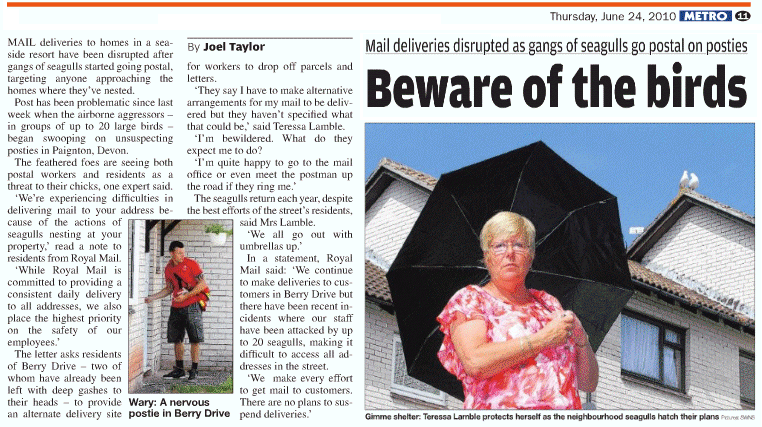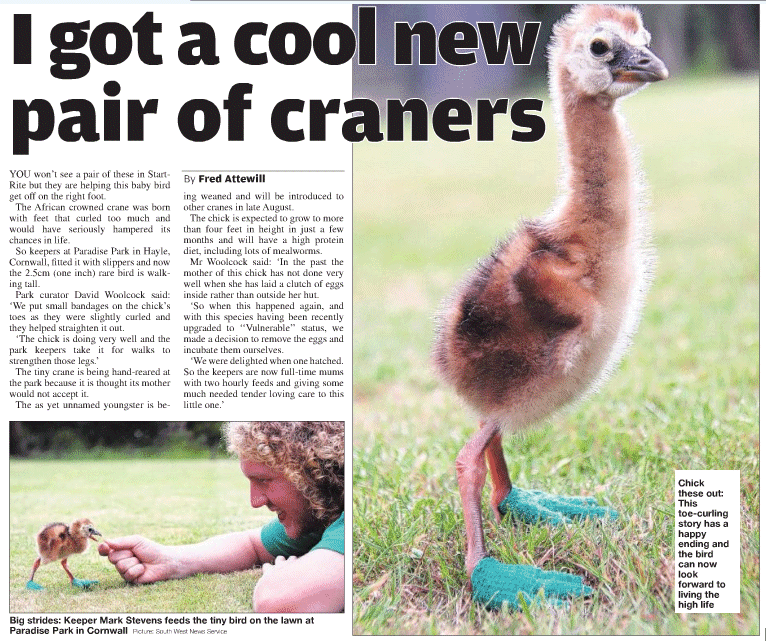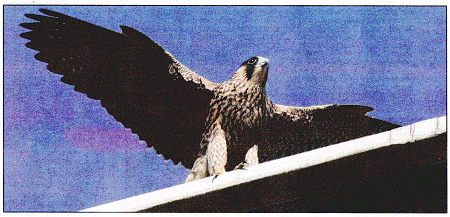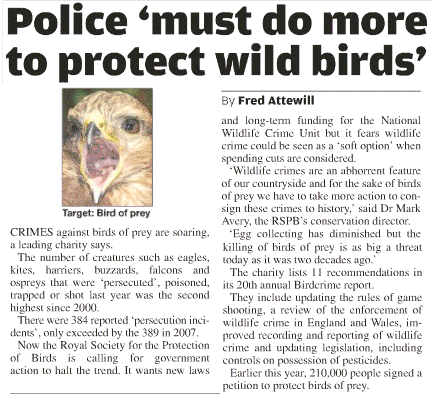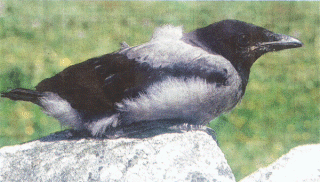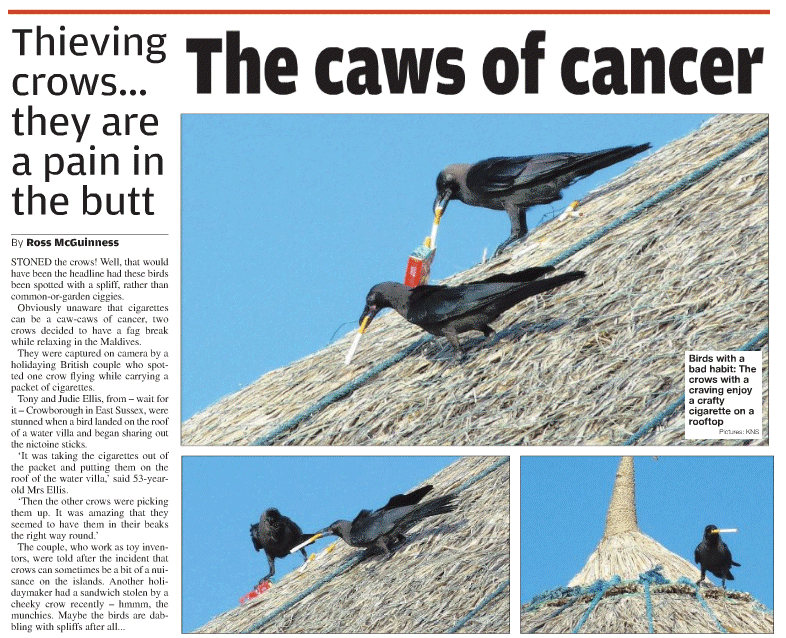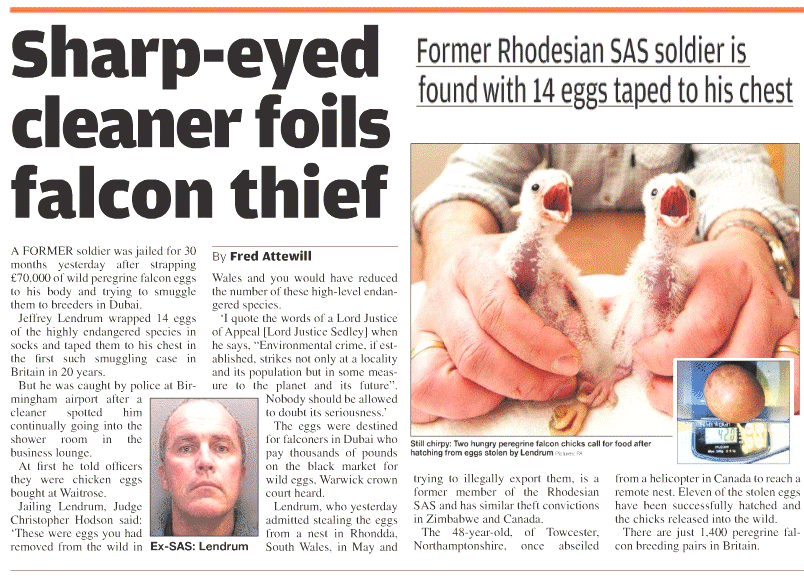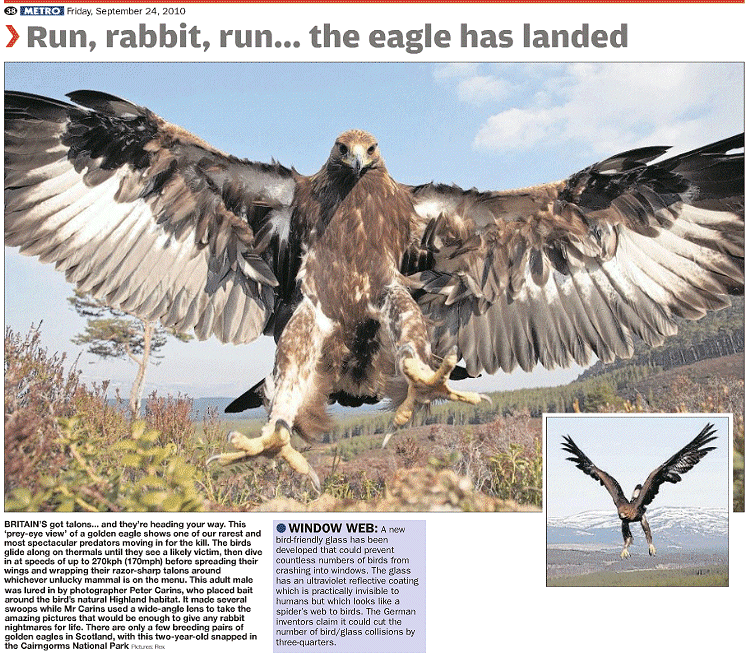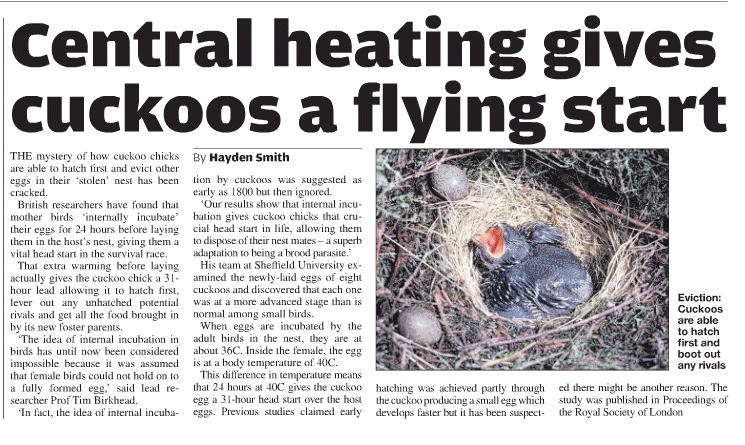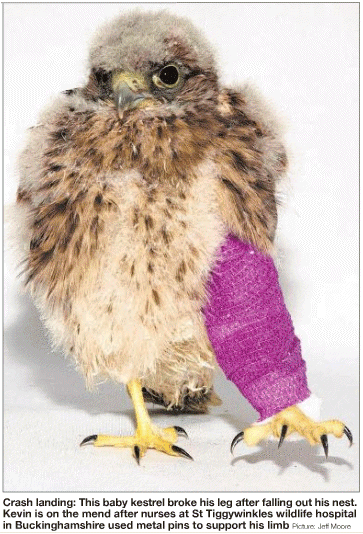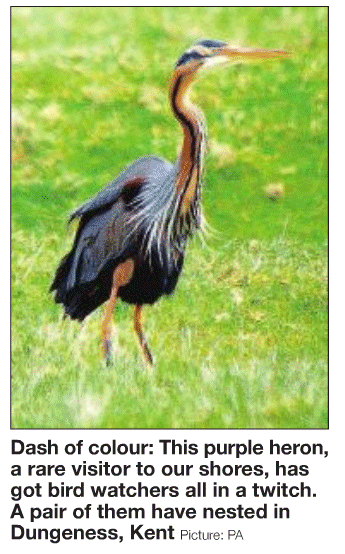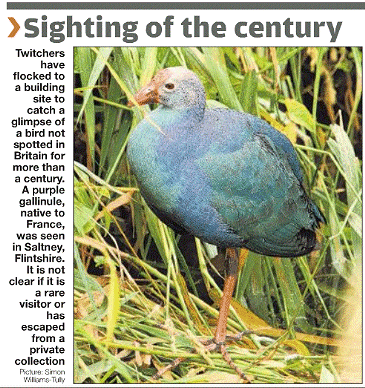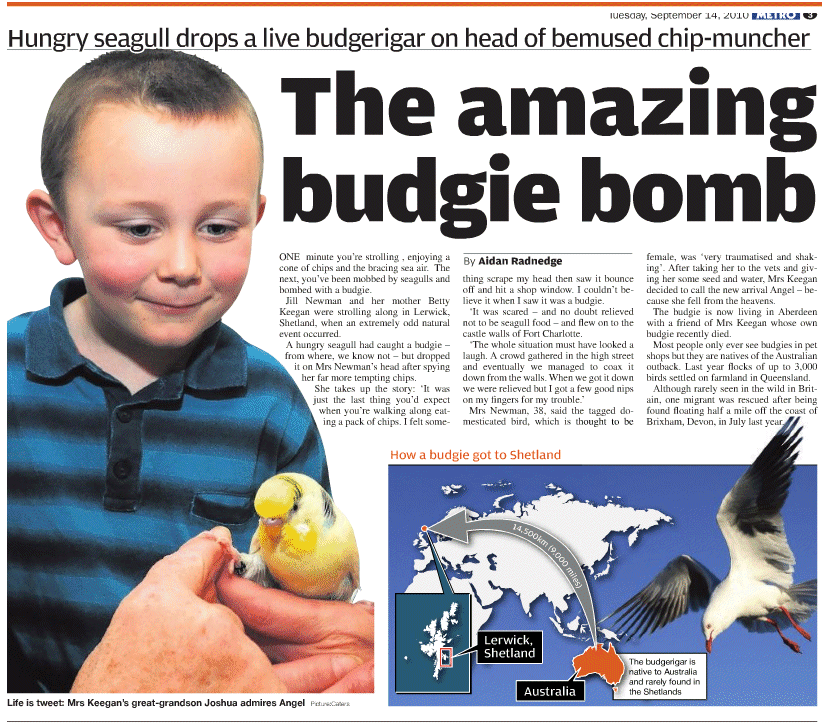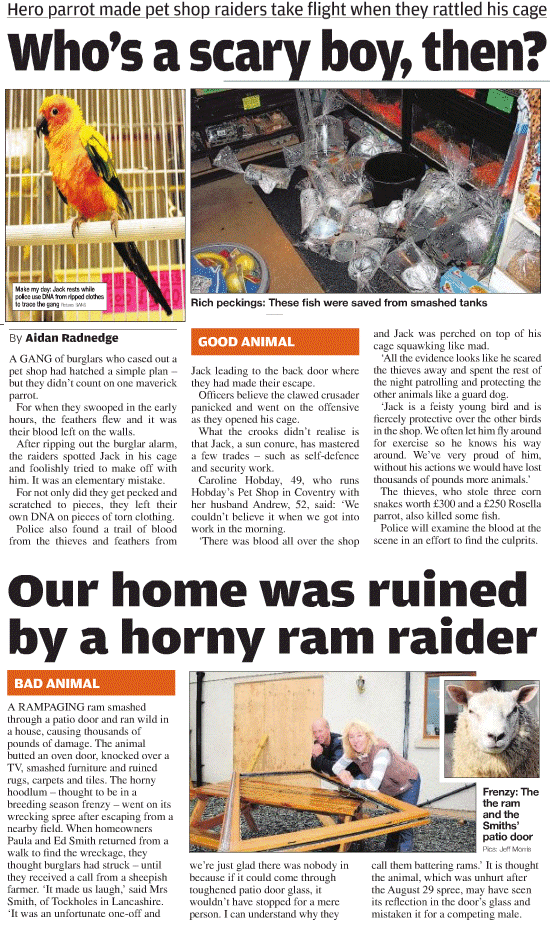NEWS
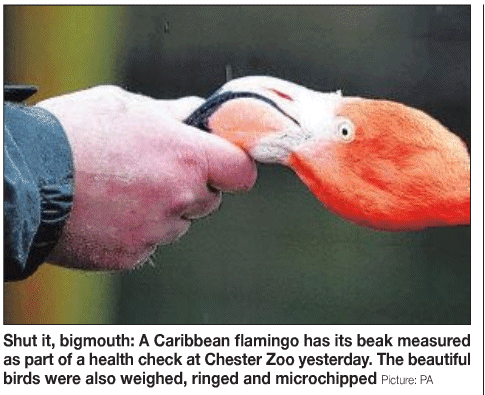
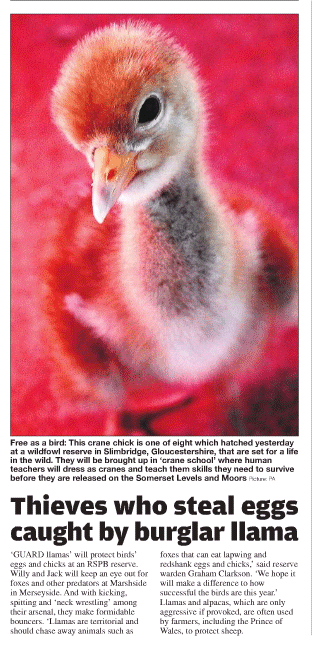 |
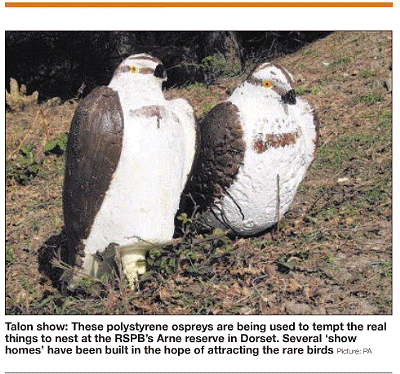
|
DEFRA backs down on buzzard ‘management’ trial!!News just in, from Defra’s twitter account: “We’ve listened to public concerns, so we are stopping current research and developing new proposals on #buzzards” Fantastic news (well, at least until we find out what these ‘new proposals’ entail). A big, fat, massive WELL DONE to everyone who blogged, tweeted, emailed, petition-signed etc about this outrageous ‘study’. The people have been heard! It’s incredible to see how effective 9 days of campaigning can be! We’ll post responses here as and when they are published: RSPB response here http://northernvoicesmag.blogspot.co.uk/2012/05/bird-brained-tory-minister-does-u-turn.html http://northernvoicesmag.blogspot.co.uk/2012/05/buzzards-in-danger-from-tory-toffs.html |
|
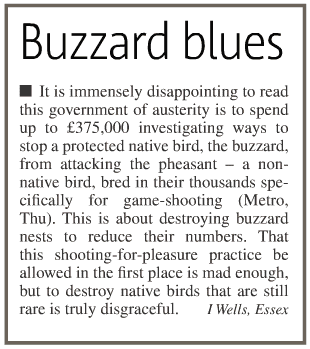 |
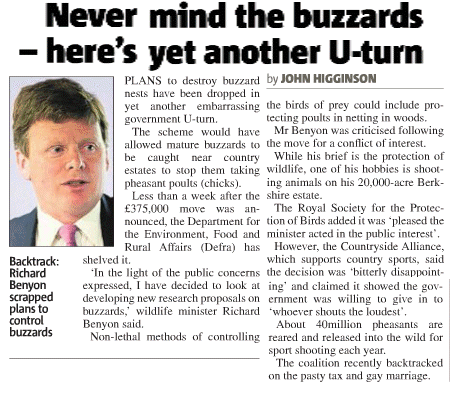 |
|
|
Peregrine falcon dies taking first flight in Manchester |
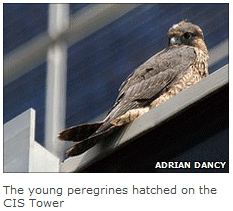
On Wednesday 23 June, the RSPB learned that a dead peregrine had been found on the pavement near the CIS Tower, where the birds have been nesting. The young female peregrine, which appeared to have a broken neck, was later identified as one of the Manchester chicks by a special identity ring, which had been attached at the end of last month. Peregrines ringed on skyscraper Clare Reed, the RSPB's Manchester People Engagement Officer said the juvenile bird appeared to have had an unfortunate accident. "We think the poor thing was taking its first flight when it collided with a window," she said. "It probably got confused and mistook the reflection in a window for the sky." On a brighter note, RSPB staff and volunteers at the Date with Nature viewpoint in Exchange Square spotted the other peregrine chick taking its maiden flight together with its parents. Visitors, shoppers and commuters in Manchester can watch the peregrines in Exchange Square daily from 11am to 6pm until the surviving chick leaves in early July. The Manchester Peregrine project is run as part of the RSPB's Date with Nature programme of events, which make rare and spectacular birds accessible for everyone to see. RSPB and the peregrines
|
Devon pigeon racer calls for peregrine falcon cull |
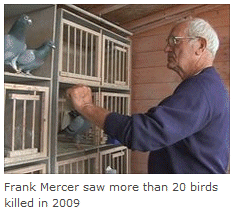 A
pigeon racer from Devon is calling for a controlled cull of birds of prey. A
pigeon racer from Devon is calling for a controlled cull of birds of prey.
Frank Mercer, from Shillingford, near Tiverton, said drastic action was needed because so many of his birds were being killed by peregrine falcons. He said that, until about 10 years ago, there were few problems but they now attacked his birds constantly. He said all but one of his 24 birds was killed in 2009. The RSPB said the predators were protected and warned that killing them was illegal. Mr Mercer, who has raced pigeons since he was a boy, said he was taking a gamble every time he let his pigeons out. But the RSPB said any attempt at a cull would be misguided. Tony Whitehead, of the charity, said: "The way we look at birds of prey is that it's just another part of the environment. "If you have a leisure interest and you put pigeons out there, the consequence is that some of them will be taken by birds of prey." |
| The above two stories highlight the stupidity of culling - and the human selfishness of population control - pigeons are falcon prey - much as hens and rabbits are fox prey - because man may have a vested interest,does not give us the right to cull the animal that we see as a competitor - we laud ourselves above the animal world as morally superior and yet cannot use an gram of sense when it comes to population control. The fictional Chaotician Ian Malcolm in Jurassic park advised that "Nature finds a way" and those messing with nature didn't seem to understand what he meant. Populations control themselves,and when we intervene it should be an informed intervention as opposed to a knee-jerk "cull it" without thinking of how one population affects another. Nature's systems are in complex connection with each other and simply culling one species can have unknown side-effects. Indeed the government advisor Sir Robert May has shown how innoculation can actually increase the spread of a disease,because people do not understand Chaos Theory and the relationships of complex systems. |
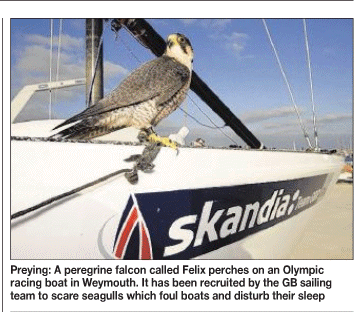
Peregrines costing us Songbirds |
| IN Sean Wood's feature on peregrine chicks at Dovestone
reservoir in Saddleworth (Advertiser; August 5) you omitted to mention the
knock on effect their increase is having on our songbird population. There are, I am reliably informed, 33,000 pairs of peregrines in Britain at present and these numbers are creating an imbalance in the bird food chain. This is because the peregrine's staple diet is pigeon and dove, which is also the diet of sparrowhawks and because of the numbers being targeted by peregrines, insufficient amounts are being left available for sparrowhawks and other raptors. This then results in the female sparrowhawk and other raptors having to resort to hunting songbirds for food, resulting in the decimation of our songbirds. I also doubt any spectators who are being encouraged to view the parent peregrines teaching their young to hunt, will be impressed by the sight of them making a 'kill' prior to tearing their victim apart on the 'plucking stone'. It may appear nice to view these chicks at their fluffy stage, but make no mistake, these birds are killers and those who would enjoy the spectacle of a 'kill' are no better than those who attend bullfights or dogfights. MARIE CLEMENTS Audenshaw [The Advertiser 12/8/2010] |
All part of the food chain |
|
| JUST what planet/century does Ms Clements (Readers' Letters, Aug 12)
live in? Peregrines and other predatory birds are just a part of nature,
as are the song-birds she claims are being wiped out by them. I too love
songbirds and regularly feed them in my garden, but as a bird lover she surely
can appreciate there is a food chain in nature and these hawks are an integral
part of it. Yes, these birds are killers but so are lions and tigers, killer
whales and sharks and so on. Is she suggesting we go back to the days where
predatory birds were practically shot and poisoned out of existence as they
were over the past century mainly to provide sport for the shooting of game
birds? Come on Ms Clements, let us show some appreciation of these type of
birds teturning to their native habitat and marvelling at the sight of them
in flight and on our doorstep. PHIL ROBERTS Dukinfield |
Peregrine figures 'absolute nonsense |
| RE: Marie Clements' letter about peregrines, I'd like to know her 'reliable'
source, and the provenance of the estimated '33,000 pairs of peregrine falcons'?
Absolute nonsense. The facts are the RSPB estimate that there are around
1,500 pairs in the UK. And as for her other reasoning, politeness prevents
me from countering, suffice to say there are other reasons why there is a
decline in some 'songbirds, including changes in farming practices, drought
in some migration areas, and the domestic cat. There are an estimated l0m
cats in the UK. Now do the maths. if every cat killed one small bird! SEAN WOOD Padfield [Advertiser 26/8/2010] |
Wrong to take pleasure in killing, however natural
PLEASE let me reply to the responses from Sean Wood and Phil Roberts (August
26) to my letter making the point that promoting an increase in peregrine
population is causing an imbalance
in the natural bird food chain.
MARIE CLEMENTS [Advertiser 16/9/2010] |
| Dear Ed, With respect to Mrs Clements concerns for birds of prey,she
may like to know that the Metro just reported that crimes against birds of
prey are soaring,the number of them shot or poisoned was the second highest
since 2000,384 reports of persecution only exceeded by 389 in 2007.Before
that the metro had reported on a case of an SAS soldier stealing falcons
and eggs.
Perhaps her high profile morality would lend itself to protecting the persecuted much as those of us who take to watching such birds are doing. If she had any clue how populations work she might understand that natural processes involve populations plummeting as well as reaching crescendos. Whether in fact song birds suffer from birds of prey is irrelevant - watching them is not about making young children wallow in the spectacle of a kill but,trying to protect those birds from the worst creature on the planet - us. For her edification,the way populations interact can be found at www.medlockandtame.org.uk/grey-squirrel.html which is based on another persecuted animal,the grey squirrel - but the model applies to any population. |
----- Forwarded Message ---- From: North West Hunt Saboteurs Association <info@nwhsa.org.uk> Sent: Wed, 9 February, 2011 0:11:05 Subject: Stop the Corvid Cull
The Songbird Survival Trust - several of whose most prominent figures own shoots or have strong shooting connections - has called for a cull on corvids (magpies, crows, jackdaws etc). This is despite there being evidence that these birds do not cause the deaths of songbirds as the Trust claims. It is reasonable to conclude that the group’s close connection to the shooting industry lies behind its cull plans given that shooters blame corvids for eating pheasant chicks and the feed intended for ‘game’ birds. The group’s dubious motives were exposed in The Sunday Times on February 6th. Nick Forde, the Trust’s principle spokesman could not identify any of the three most endangered songbirds, despite claiming to be passionate about them. He had no trouble, however, identifying a pheasant. The corvid cull is backed by the Game and Wildlife Conservation Trust (GWCT), which also boasts a number of leading figures who shoot or profit from shooting. Read the article in The Telegraph. How can I help?
Write to Defra to oppose the cull: Caroline Spelman, Secretary of State for the Department of Environment, Food and Rural Affairs, Nobel House, 17 Smith Square, London SW1P 3JR Contact the Game and Wildlife Conservation Trust on 020 7290 0110? or email to politely voice your objection. Attend the demonstration outside the GWCT’s office in London: Meet at 12pm on Saturday 19th February at 26 Mortimer St, London, W1W 7RB Contact on the day: Paul (Tel number on the day: 0799 981 2994)
North West Hunt Saboteurs Association
|
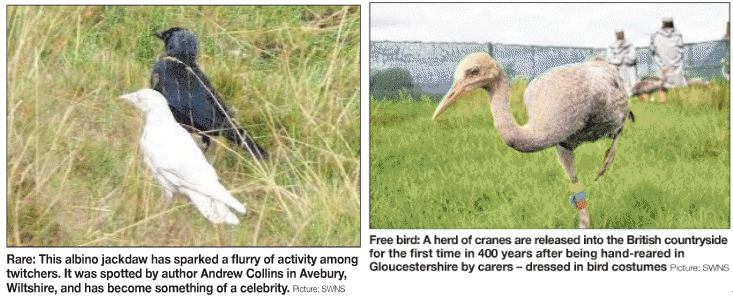
|
|
 |
